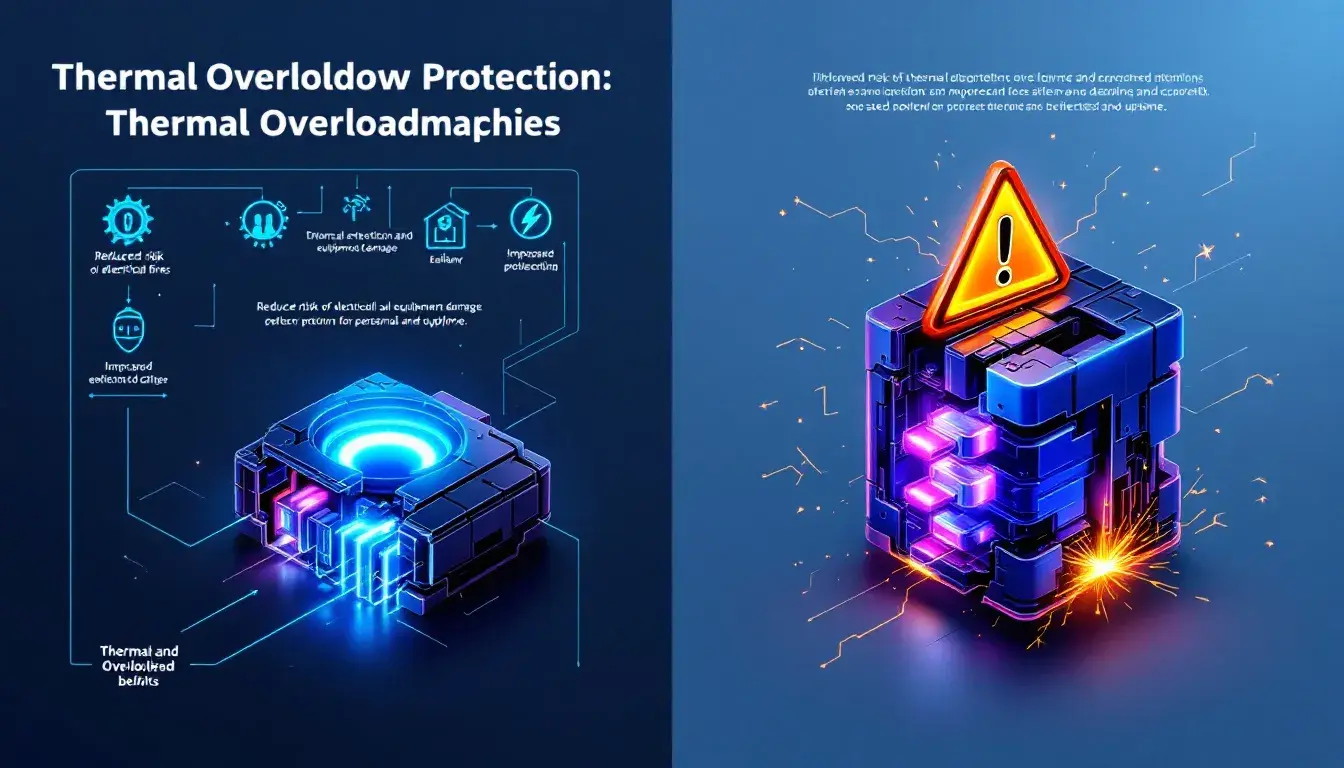MCCB vs. MCB: Understanding the difference
Table of Contents
ToggleEver wondered how our electrical devices remain safe despite experiencing occasional faults or damages? Just as a busy street needs traffic signals to control traffic and maintain safety, electrical circuits also need something to protect the system from accidents.
A circuit breaker is a safety device that protects an electrical system from damage by disconnecting the circuit whenever faults such as an overload or short circuit are detected.
If everything is running smoothly, it serves as a green light that gives a signal to allow the current to flow freely. However, if there is a fault or an issue, the circuit breaker acts like a red light that stops the current flow to avoid further damage to the system.
There are two types of circuit breakers: Miniature Circuit Breakers (MCBs) and Molded Case Circuit Breakers (MCCBs). In this article, we will discuss the key differences between the two, which should you choose, and how to choose the best one for your system.
What is an MCB?
An MCB is a type of circuit breaker that is generally used for residential or small business settings. They have high sensitivity to even small amounts of current enabling them to have a quicker response time to abnormalities in an electrical system.
What is an MCCB?
An MCCB is a type of circuit breaker optimized for larger-scale applications such as commercial or industrial settings. They are the advanced version of MCBs as they have greater capacity and more features. They are built with a molded case, hence the name, making them more durable against environmental hazards such as rain, dust, and wind.
Key differences between MCB and MCCB
- Capacity
MCBs have a lower current rating and voltage capacity than MCCBs. This means that MCBs are more suitable for small-scale applications such as homes while MCCBs are better suited for commercial and industrial settings.
- Short circuit timing
Both MCBs and MCCBs have quick response times in dealing with short circuits. However, MCBs have shorter short circuit timing than MCCBs, making them more suitable for residential applications where a quick
- Flexibility
MCBs have a fixed tripping mechanism which means that the tripping setting is already constant. MCCBs on the other hand utilize a movable tripping system which means that their tripping system could be customized to suit various scenarios.
Whether you should choose an MCB or an MCCB depends on several factors such as the size of your electrical system, availability of skilled operator, and technical compatibility with your system. Generally speaking, MCBs are used for residential settings while MCCBs are for commercial and industrial applications.
The TOSUNlux TSB3-63 Miniature Circuit Breaker is a highly capable MCB. It has a 4.5/6kA breaking capacity, making it ideal for commercial and industrial applications. It complies with IEC60898-1.
For MCCBS, the TOSUNlux TSM2 Moulded Case Circuit Breaker would be a wise choice. It is supplied with a rated insulation voltage of 800V and used for circuits with a frequency of 50Hz AC, a rated operating voltage of 400V AC or below, and a rated operating current of up to 1600A.
Tel: +86-577-88671000
E-mail: ceo@tosun.com
Skype: tosunelectric
Wechat: +86-139 6881 9286
WhatsApp: +86-139 0587 7291
Address: Room No.1001 Wenzhou Fortune Center,Station Road, Wenzhou, China
REQUEST A QUOTE
WhatsApp us
 : +86-139 0587 7291
: +86-139 0587 7291 English
English Español
Español Русский
Русский Français
Français العربية
العربية Português do Brasil
Português do Brasil Українська
Українська Türkçe
Türkçe Polski
Polski Nederlands
Nederlands Italiano
Italiano Bahasa Indonesia
Bahasa Indonesia हिन्दी
हिन्दी اردو
اردو አማርኛ
አማርኛ Հայերեն
Հայերեն ไทย
ไทย Монгол
Монгол فارسی
فارسی Shqip
Shqip Ελληνικά
Ελληνικά


